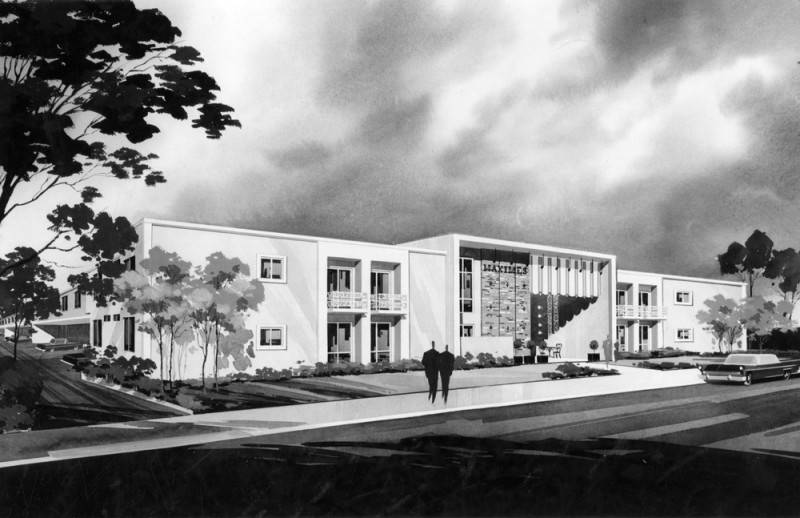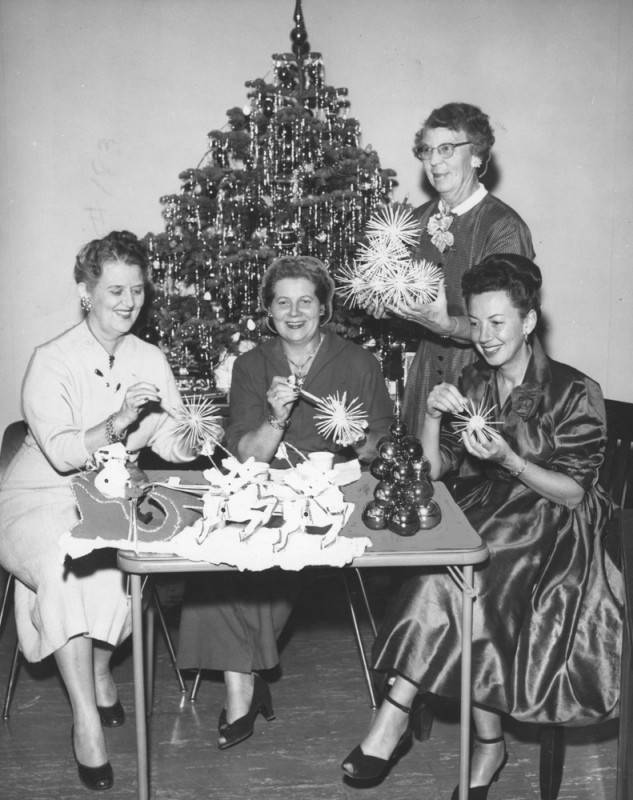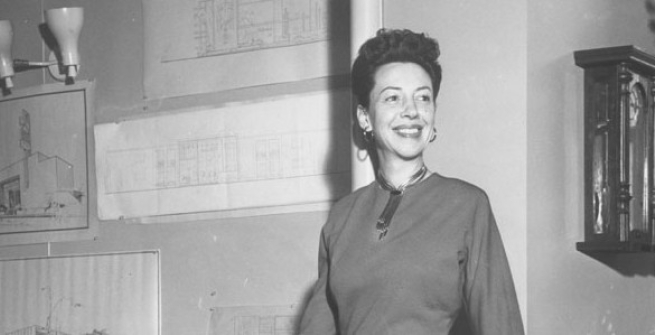For many, the predominant image of the post-War woman is the suburban mother and consummate homemaker as immortalized in television characters of the period such as Donna Stone (The Donna Reed Show), Harriet Nelson (The Adventures of Ozzie and Harriet), and June Cleaver (Leave it to Beaver). This figure did indeed exist in suburban homes throughout the county and was a vital part of the social fabric, but she wasn’t the sole feminine representative in the post-War era. Many women also pursued careers, and local architect Lucille Bryant Raport is perfect example of a professional women who excelled during the post-War era in what traditionally had been viewed as a male field.
Born in Kansas City, Mo., Lucille Bryant majored in English at the University of Kansas. After marrying James Raport, one of the school’s professors and moving onto the campus, she decided to continue her studies and selected architecture as a concentration. She was allowed to enter the school, but, as she later recalled for a Valley Times reporter, “I was told that I was wasting my time since it was a field with few, if any opportunities for women.”
Raport forged ahead, earning her degree in 1941. Once the United States entered World War II, job opportunities opened up as positions were vacated for military service, and Raport was able to start her career at a Kansas City architecture firm. Before moving to North Hollywood in the mid-1940s she had made Junior Partner at the firm of Harry Inge Johnston, and served as the Chief Designer for Skidmore, Owens, & Merrill. After relocating to Southern California, Raport studied under renowned architect Richard Neutra and established her own architectural firm.

1962 rendering of Raport's Maximes Apartments at 8363 Willis Avenue (Valley Times Collection/Los Angeles Public Library)
Raport was adept at both residential and commercial architecture, though most of her commissions came in the form of apartments and single family dwellings. Her arrival in Los Angeles at the beginning of the San Fernando Valley building boom gave her plenty of opportunities to make her mark. Raport’s completed structures have proven to be great examples of mid-century modern design, some of which were photographed by Julius Shulman. Her commissions include, but are not limited to the following:
- Virginia Bryant Residence (1947) – 11135 Erwin Street, North Hollywood.
- Lockheed Ski Cabin (1947) – Lake Arrowhead.
- Personal Residence (1951) – 11139 Erwin Street, North Hollywood.
- Valley Life Home (1951) – 16837 Addison Street, Encino.
- Kahn Residence (1951, 1963 bedroom/bathroom addition) – 4826 Biloxi Avenue, Toluca Lake.
- Building Contractors Association of California (1952) – 1571 Beverly Boulevard, Los Angeles.
- Oakwood Elementary School (1952) - 11230 Moorpark Street, North Hollywood.
- Parr-Schoenfeld Residence (1954) – 3307 Bonnie Hill Drive, Hollywood Hills.
- Morse Signal Devices of California (1955 building addition) 211 South La Brea, Los Angeles.
- Marshall Residence (ca 1956) – 1656 Larco Way, Glendale.
- Canby East Apartments (1959) – 7450 Canby Avenue, Reseda.
- Maximes Apartments (1961) – 8363 Willis Avenue, Panorama City.
- Polynesia Apartments (1961) - 7314 Variel Avenue, Canoga Park.

Lucille Bryant Raport, far right, is shown with fellow Zontas as they prepare for a Valley Youth Foundation benefit. Justin Westerfield, Valley Times Collection/Los Angeles Public Library
When she wasn’t busy with her architectural firm, Raport was heavily involved with the local chapter of Zonta International, a service club for professional women. She also served as President of the Association of Women in Architecture, and always advocated for women to enter the field, noting, "Women spend more time in the home than do men. They know what appeals to women, they are generally more patient in dealing with people, they usually have a better sense of color harmony, and are certainly just as talented."
When asked what advice she had for women competing in a male-dominated profession, she responded, "Look like a girl, think like a man, act like a lady, and work like a dog."
